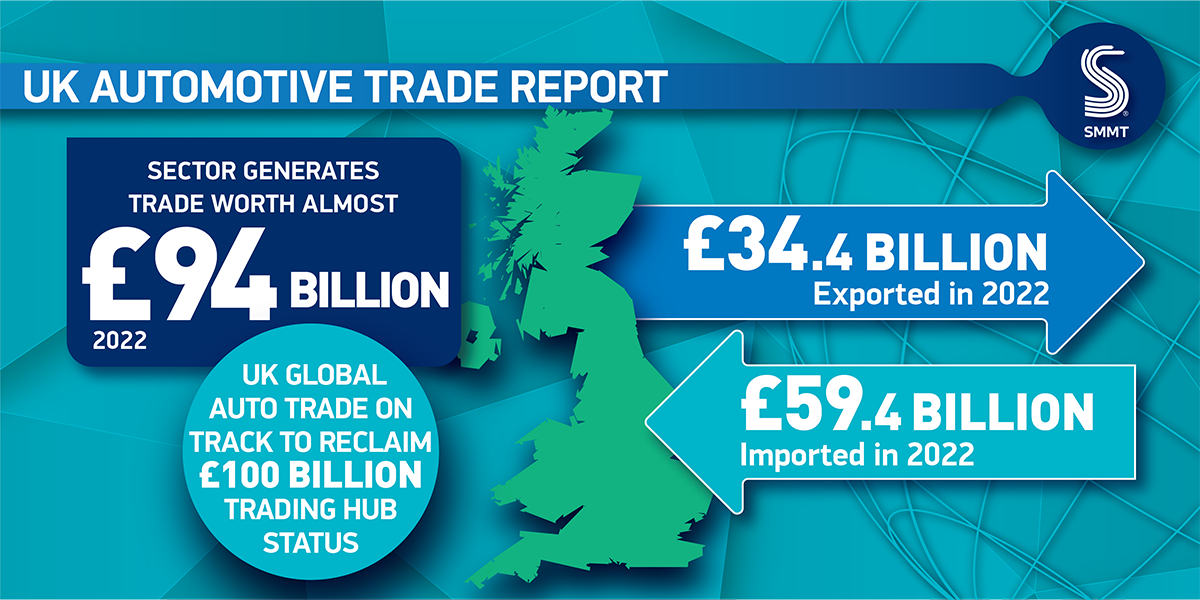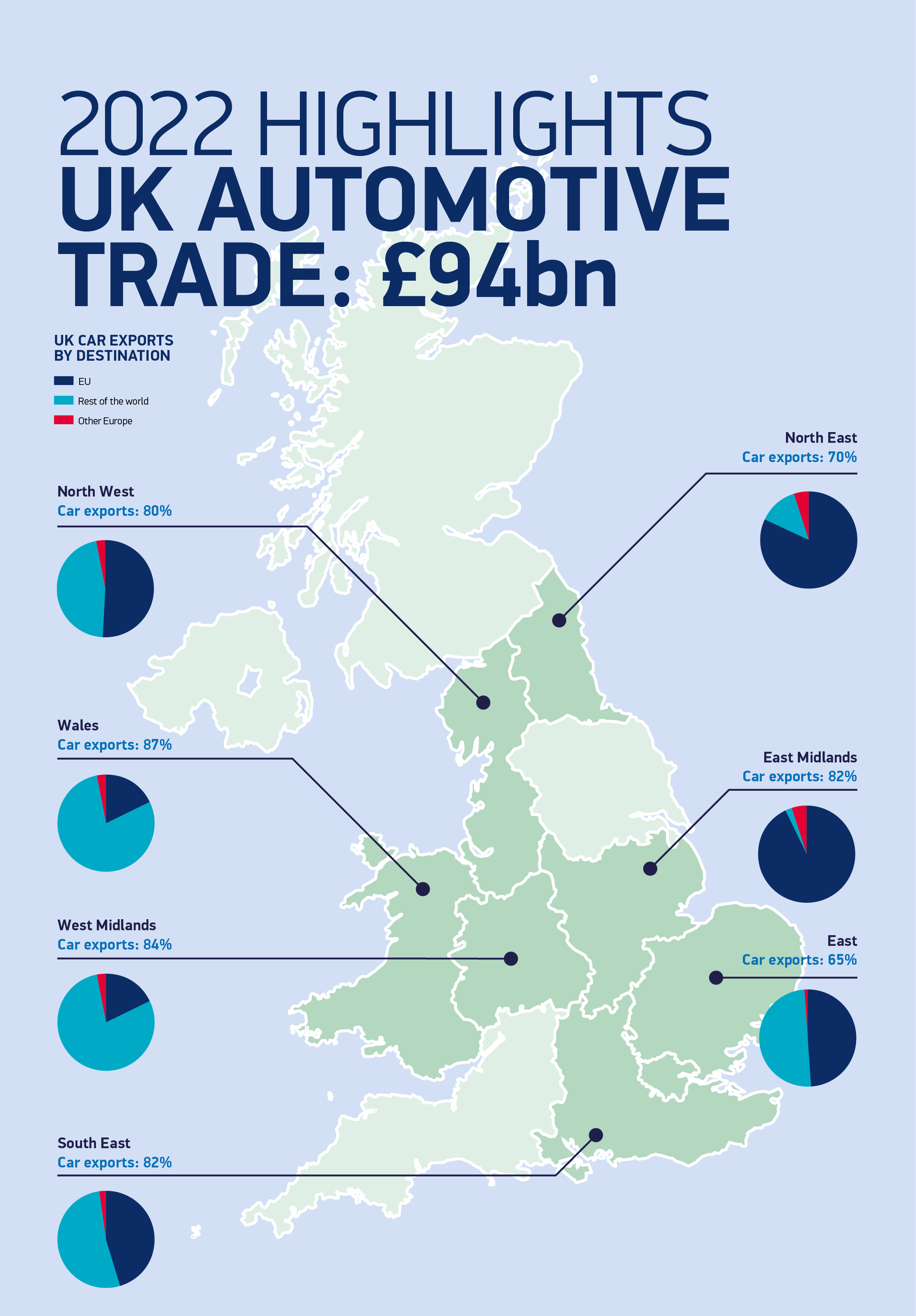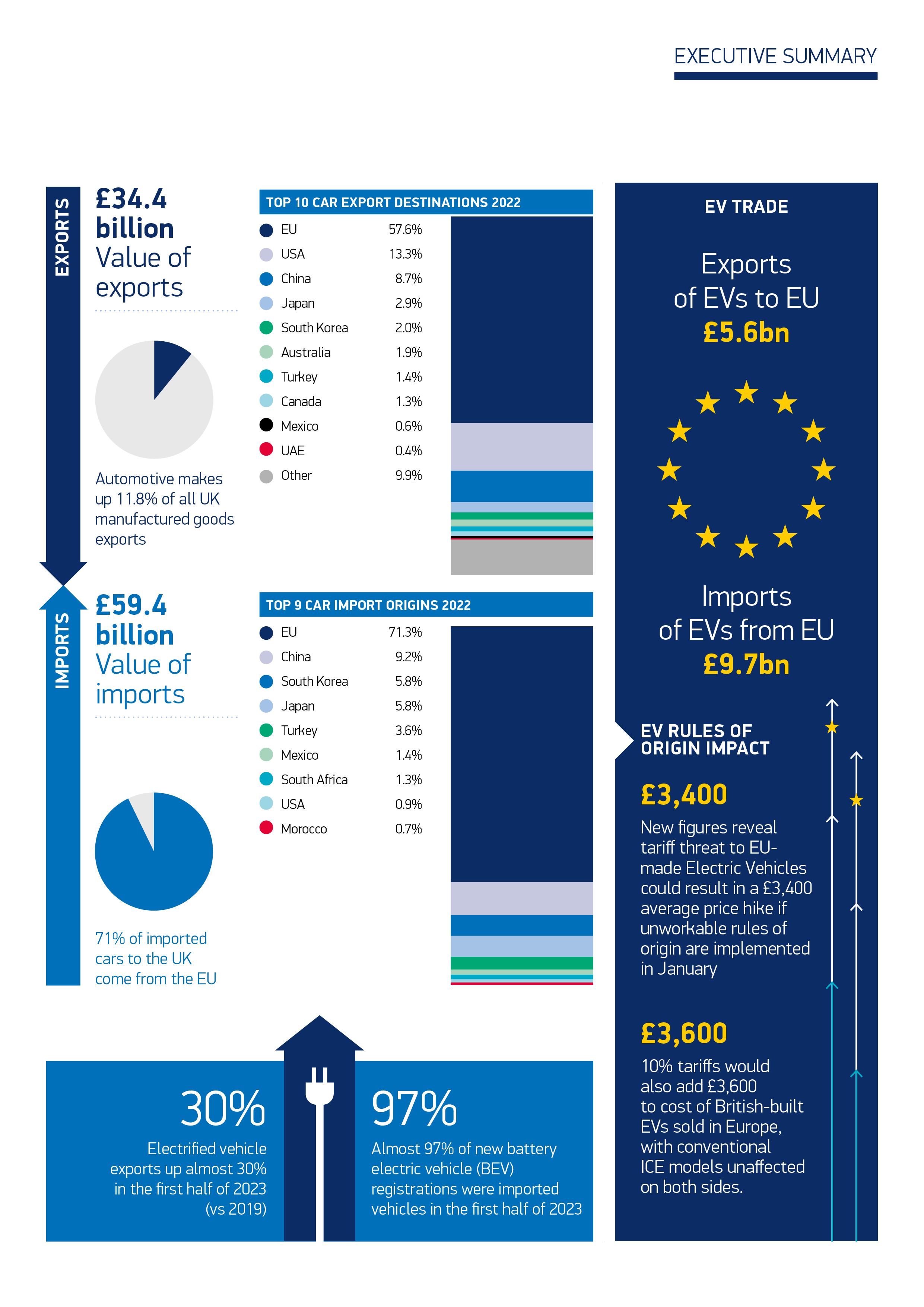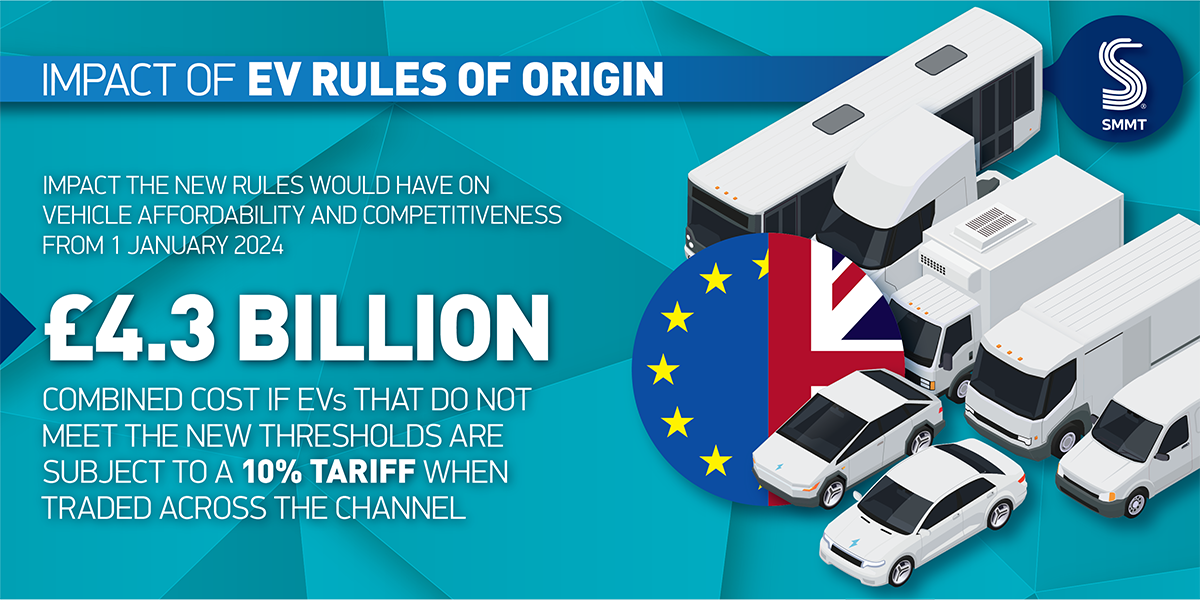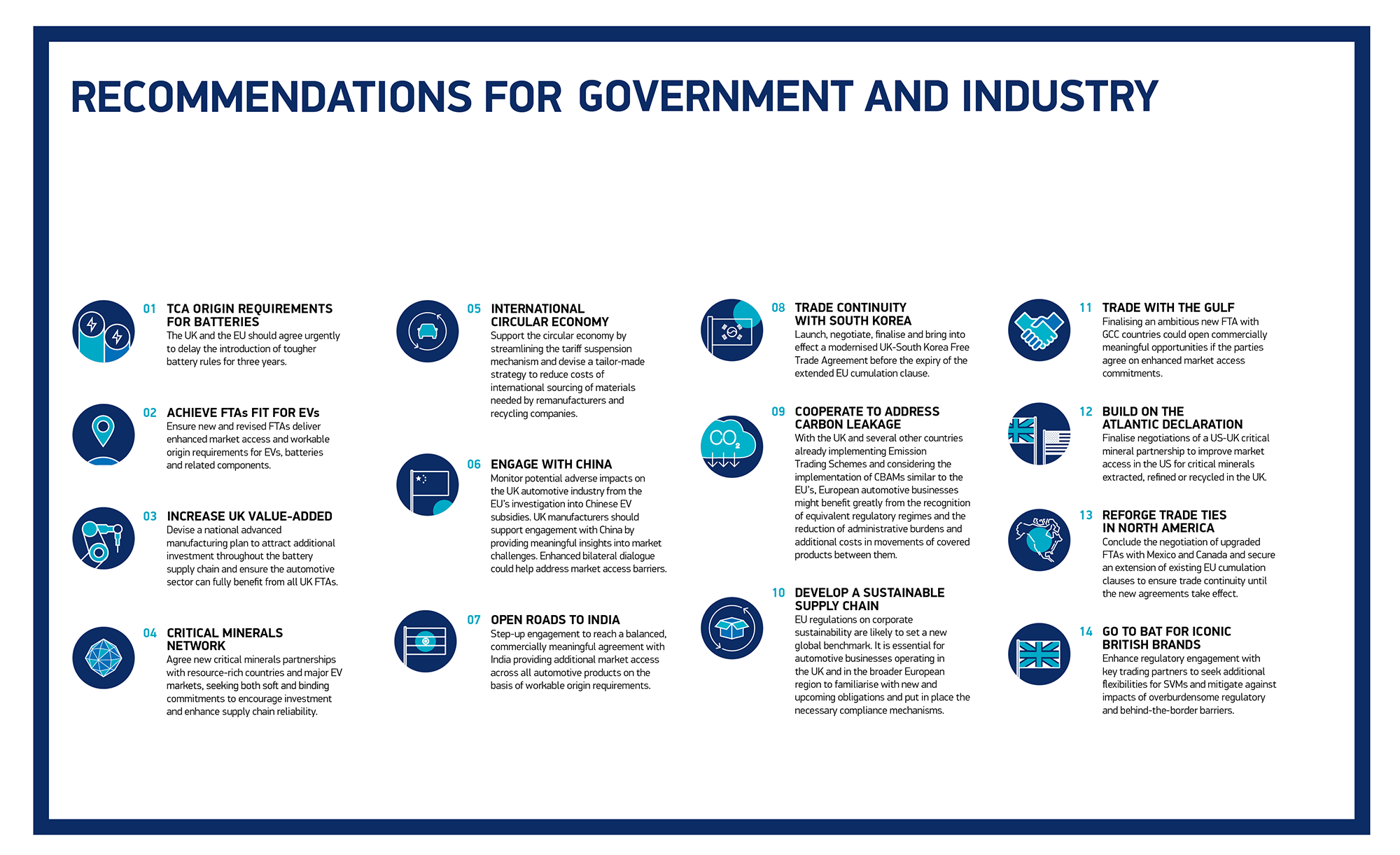DOWNLOAD SMMT AUTOMOTIVE TRADE REPORT 2023
The automotive industry’s ability to navigate uncharted terrain remains undiminished: a global pandemic, war in Ukraine, prolonged supply chain shortages and the once-in-a-generation shift towards electrification – all in addition to Brexit, a cost-of-living crisis and soaring inflation. All were, or are, massive challenges that would test any industry, yet our sector has demonstrated its resilience and pathway to growth, growth firmly driven by global trade.
UK Automotive is on course to reclaim its position as a £100 billion-plus trading powerhouse by the end of 2023, a figure that Covid cut by a quarter. This underlines the significant role played by the sector in generating employment, fostering growth and acting as a significant contributor to the broader UK economy. Automotive represented nearly 12% of all Britain’s manufactured goods in the first half of this year and almost one in eight UK-built exports. These include high value, cutting-edge vehicles shipped to all corners of the world from globally renowned brands, parts and components from companies synonymous with quality and innovation and, increasingly, new tech products designed to meet changing mobility needs.
In this post-pandemic world, the UK remains a global leader in automotive production and exports, with an increasing number of cars, vans, buses, trucks, taxis, specialist and even off-highway vehicles transitioning towards zero emissions. With recent significant inward investment, the UK’s expanding zero emission vehicle supply chain is not only adapting to change but working to become a global leader.
We have committed to net zero mobility, not just as a response to regulatory pressure or government commitment, but to provide a sustainable future for generations ahead. To achieve this ambition we must have free and fair trade with Europe and other established and emerging markets worldwide.
The EU is our largest trading partner – receiving almost 60% of UK passenger vehicle exports and supplying more than 71% of the cars we import. So finding a solution to prevent the imposition of tariffs on electric vehicles and batteries as set by the current EU-UK Trade and Cooperation Agreement rules of origin is our most pressing challenge. Failure to do so risks a £4.3 billion hit to the sector across Europe, which, in effect, will add a tax on the very vehicles needed for us to decarbonise road transport.
Safeguarding trade with the EU is critical but we must remain focused on trade around the world. This means addressing many challenges. Ensuring new and revised free trade agreements, especially with India, South Korea, Canada, Mexico and the Gulf states. Delivering enhanced market access and workable origin requirements for EVs, batteries and related components. Building on recent investment wins to develop a sustainable battery and critical mineral supply chain in Britain. Improving support for remanufacturing and recycling. Enhancing regulatory engagement with key trading partners so our small volume manufacturers remain competitive. And remaining alert to any adverse impacts from global trade tensions.
Solve that puzzle and the benefits are tremendous – jobs, growth and prosperity across the UK. Committing to free and fair trade is how we will spur investment, sustain competitiveness and deliver zero emission products that address the global challenge of climate change.


